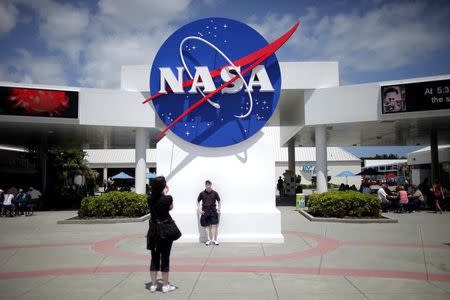NASA could have cut costs after botched Orbital launch - watchdog

By Irene Klotz CAPE CANAVERAL, Fla. (Reuters) - NASA missed opportunities to save millions of dollars following Orbital ATK’s failed cargo run to the International Space Station last year, the agency’s top watchdog said on Thursday. The NASA Office of Inspector General also questioned Orbital’s plan to resume deliveries to the space station, a permanently staffed, $100 billion research laboratory that flies about 250 miles (400 km) above Earth. Orbital is buying rides for its next two Cygnus cargo capsules from United Launch Alliance (ULA), a partnership of Lockheed Martin and Boeing . Orbital’s first mission using ULA’s Atlas rocket is slated for December, with the second to follow in early 2016. Orbital also is outfitting its troubled Antares rocket, which exploded seconds after liftoff from Virginia on Oct. 28, 2014 with new engines. The revamped booster will then be used for two more station resupply missions in 2016, a schedule that the does not include a test flight and has limited opportunities for ground testing and certification, the Inspector General report said. Orbital’s plan to return to flight “contains technical and operational risks and may be difficult to execute as designed and on the timetable proposed,” the report said. Orbital declined to comment. Auditors also pointed out that the U.S. space agency could have saved up to $84 million by taking advantage of provisions in its $1.9 billion contract with Orbital. For example, NASA could have saved $21 million after Orbital launch delays resulted in multiple missions flying in 2014. Instead, NASA accepted concessions worth about $2 million, investigators said. Orbital successfully flew two of its planned eight missions before the accident. The company now plans to fulfill its contract requirements in seven flights by using the heftier Atlas and revamped Antares launchers. However, on a price-per-pound basis, as stated in the original contract, NASA is paying an extra $65 million for those missions, the report showed. In a written response to the Inspector General, NASA said it had made use of available contract provisions in its negotiations with Orbital. The oversight agency is conducting a similar review of NASA's relationship with privately owned SpaceX, which operates a second cargo line to the space station. SpaceX, owned and operated by technology entrepreneur Elon Musk, is recovering from a June 28 accident of its Falcon 9 rocket, which destroyed another station resupply ship. (Reporting by Irene Klotz; Editing by Tom Brown)
